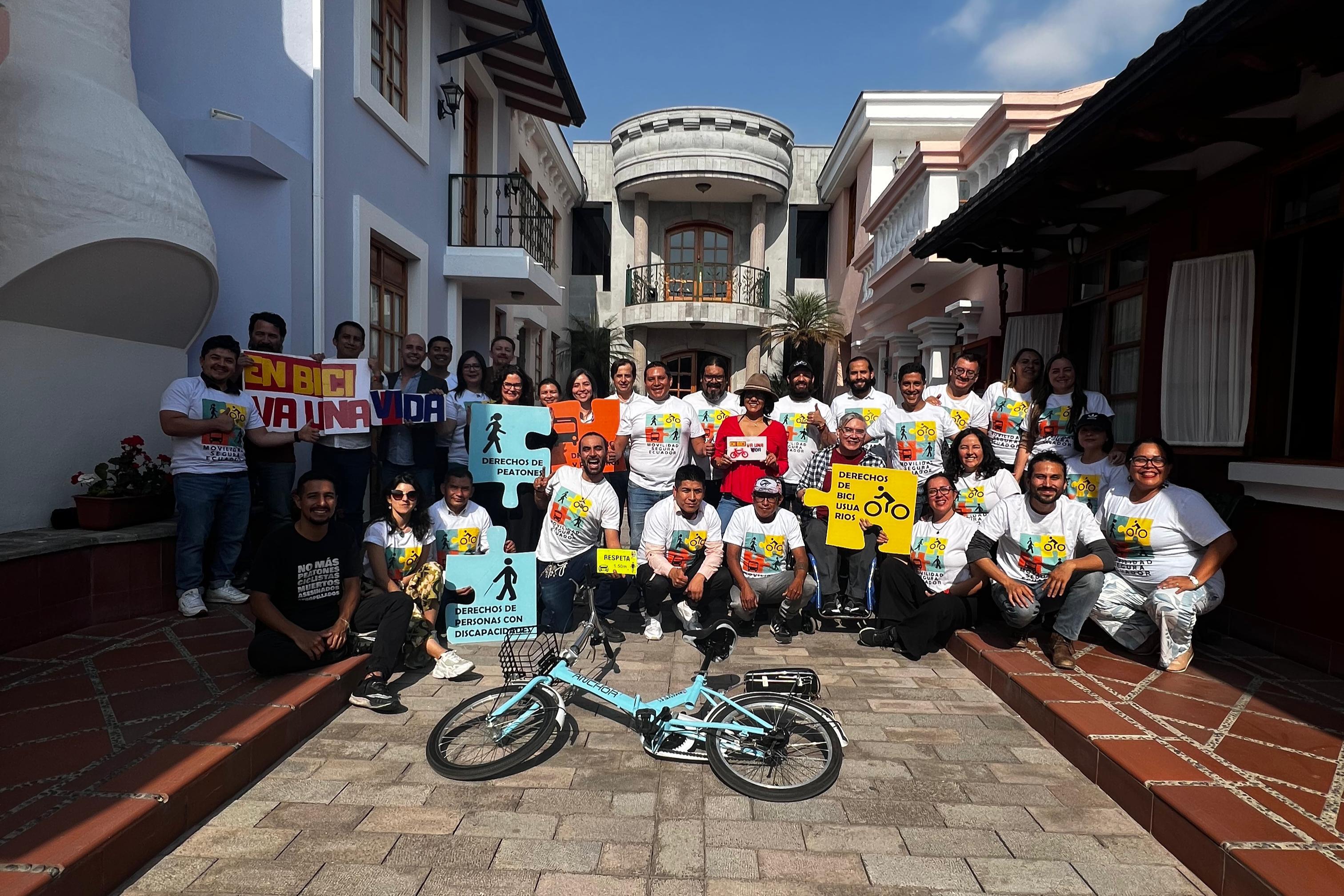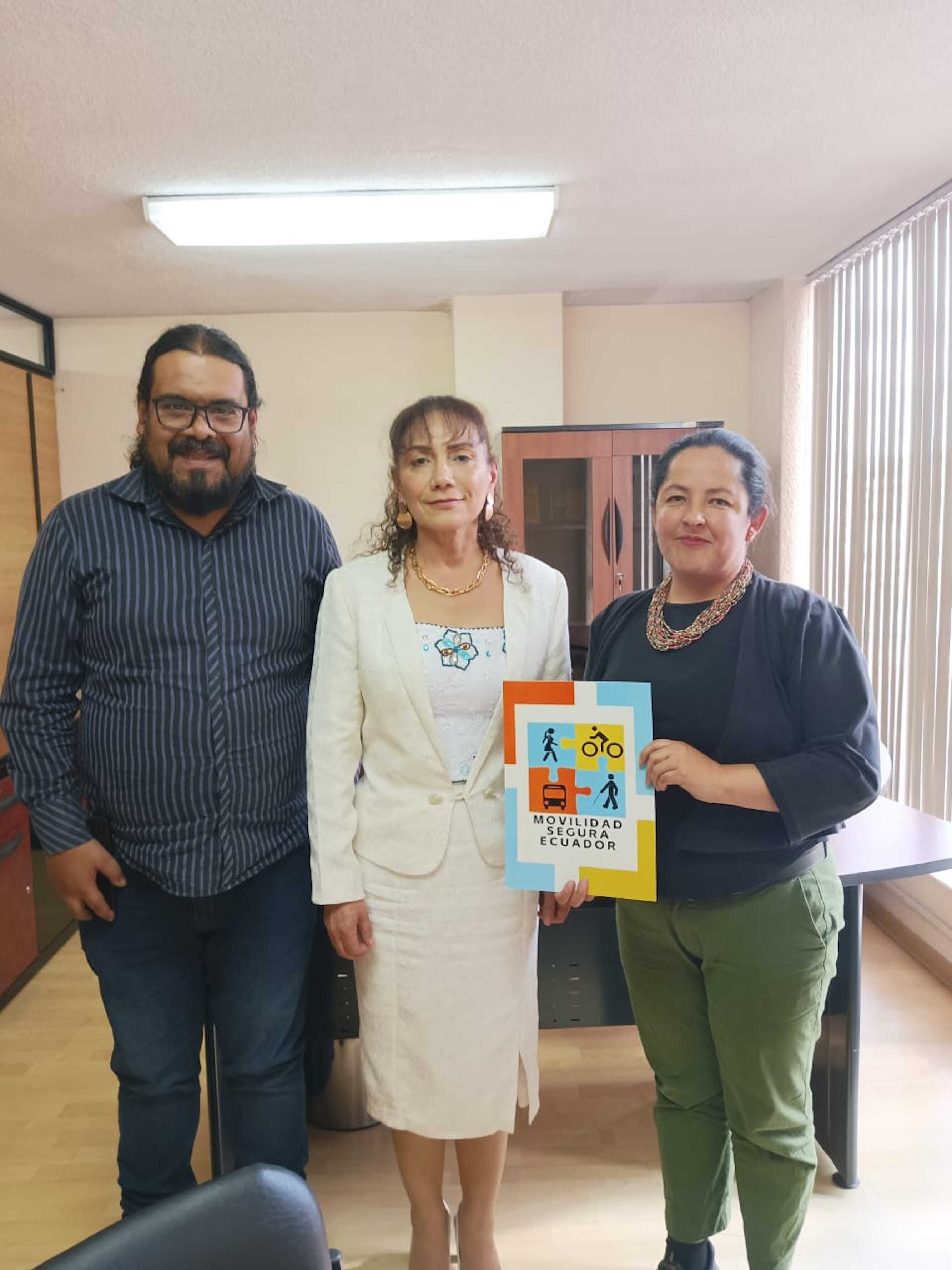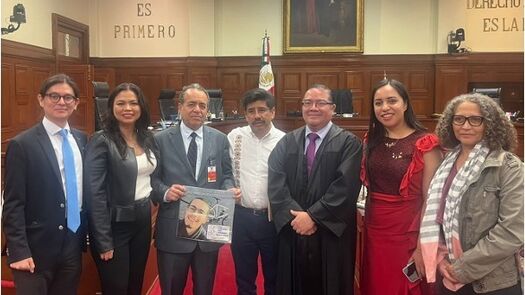December 19, 2025

Ecuadorian Coalition for Safe Mobility
In Ecuador, road safety has long been a pressing public health issue. In fact, when adjusting for population, Ecuador has the highest number of road deaths in South America. With traffic crashes ranking among the top causes of death, civil society organizations have mobilized to push for legislative change. Over the past five years, the Coalition for Safe Mobility in Ecuador emerged as a powerful force and advocate for safer roads and sustainable mobility for everyone, including pedestrians, cyclists and children.
The Birth of a Movement
Ecuador’s road safety advocacy efforts were highlighted in 2021 when the National Assembly passed a new Transit Law aimed at reducing road crashes and improving road safety. The law reduces speeds in urban areas to 30 km/h, 20 km/h in school zones and requires each newly-sold motorcycle to come with a certified helmet. Additionally, the law eliminates tariffs on imported safety equipment such as car seats and certified helmets. However, the law’s implementing rules and regulations, which were supposed to be issued within 180 days after its passage, have yet to be issued.
Advocacy in Action

Juan Pablo Rosales, Asociacion de Peatones de Quito, with Assembly member Patricia Nuñez and Sofia Gordon, Carishina en Bici
A group of civil society organizations, which started with a small number of member organizations, eventually reached over 60 to form the Coalición Movilidad Segura Ecuador in November 2022. Supported by the Global Health Advocacy Incubator, the Global Road Safety Partnership and the Bloomberg Philanthropies Initiative for Global Road Safety, the coalition began advocating for the finalization of the law’s regulations and broader reforms to Ecuador’s transportation policies.
The coalition’s work has been multifaceted and persistent. In late 2022 the coalition delivered a comprehensive set of technical recommendations to President Lasso, the Minister of Transportation and the National Transit Agency. These recommendations focused on key behavioral risk factors including speeding, drink driving and certified helmets. They also addressed active mobility and the rights of pedestrians and cyclists.
Throughout 2023 the coalition launched public awareness campaigns such as “There are no accidents, they are casualties and are preventable,” and focused on schools and hospital zones, areas with populations more vulnerable to crashes. These initiatives shifted public perception and built grassroots support for safer mobility.
During the last two years the coalition has built strong relationships with key government members who are now championing road safety reforms. This momentum is paving the way for finalizing the implementation of the rules and regulations and for reforming the country’s penal code that would bring penalties for speeding and drink driving in line with global best practice. To build public support and awareness for road safety policies, the coalition formed a network of road safety experts who are engaging journalists and sharing the latest evidence-based data to ensure accurate and widespread media coverage.
Navigating Political Turbulence
Despite facing political instability — including the dissolution of the National Assembly and presidential impeachment proceedings in 2023 — the coalition has remained persistent. They engaged newly-elected municipal leaders committed to adopting model road safety ordinances and integrating road safety into their local governance plans by recognizing them with a certificate in a prestigious event. Some coalition organizations created a campaign to highlight those municipalities that adopted the model ordinances.
Looking Ahead
The coalition’s efforts have not only kept road safety on the national agenda but have demonstrated the power of civil society in shaping public health policy. By combining data-driven advocacy with strategic communications and grassroots mobilization, the Coalition for Safe Mobility Ecuador has laid the groundwork for lasting change. As Ecuador continues to grapple with road safety challenges, the coalition’s work is far from over. The next phase involves ensuring reform to the penal code and ensuring that the country’s road safety laws match global best practice. With continued support and collaboration, the coalition is poised to transform Ecuador’s roads into safer spaces for all.



